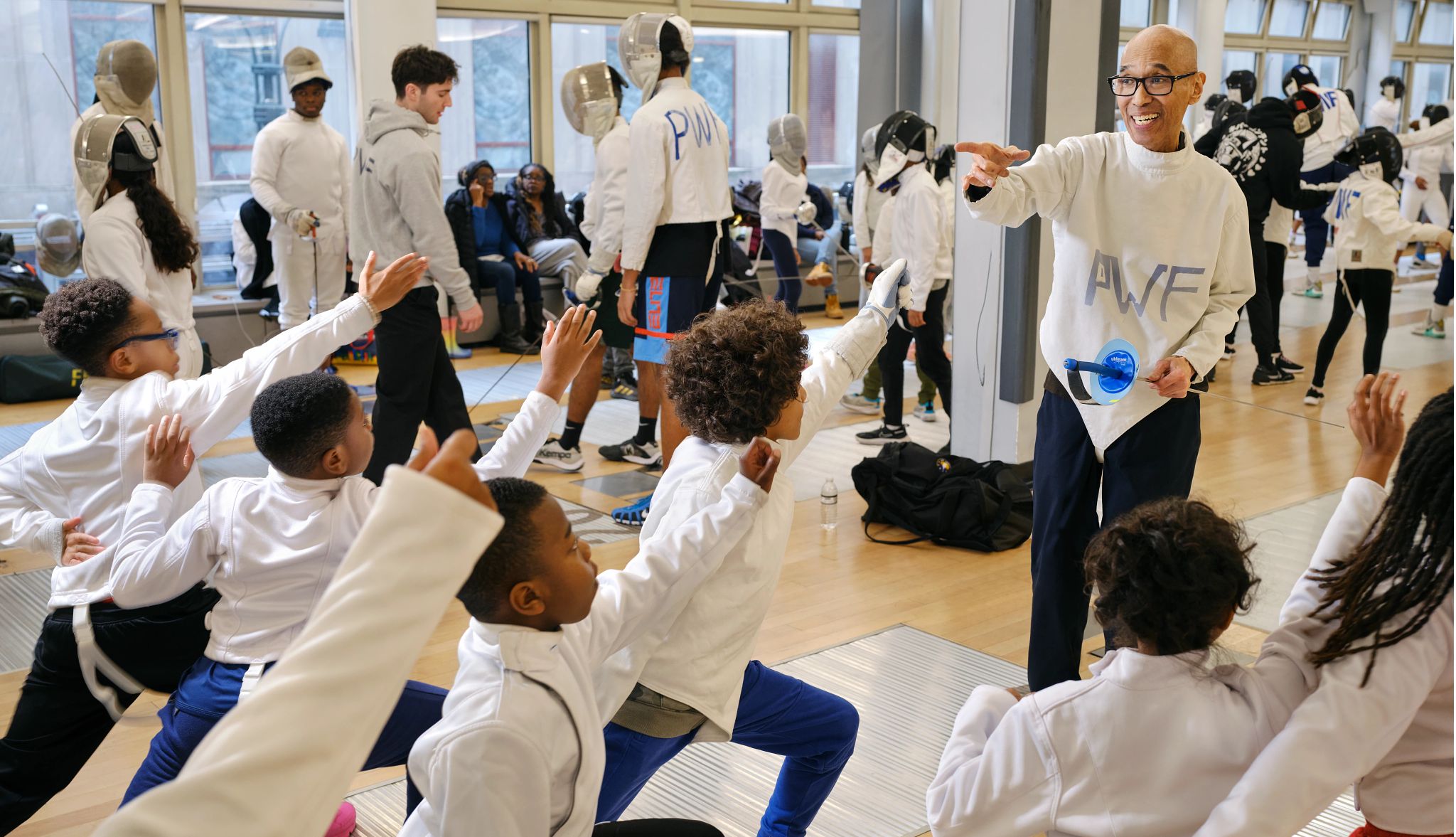AARP Hearing Center


Peter Westbrook, 72, is a retired marketing executive and the founder and CEO of the Peter Westbrook Foundation in New York City.
No matter what I do, I can never repay what I owe to the sport of fencing. But I keep trying.
My mother kicked my father out when I was 3, and my mother raised me and my sister in the housing projects of Newark, New Jersey. Mom was always trying to show me the world beyond the projects. When I turned 14, she encouraged me to try fencing. She was from Japan originally, and she told me, “We have samurais in the family.” At the time, I thought, What good does that do me here? But I tried it and fell in love with the sport. In the end, I attended college on a fencing scholarship and was a six-time Olympian, earning a bronze medal in 1984. My father was Black, and I was the first Black man to ever win an Olympic medal in fencing.
There are three disciplines in the sport: the épée, the foil and the saber. The long, slender épée is considered the most cerebral. Then comes the foil. I gravitated to the shorter saber because it fit my personality: gregarious, outgoing, loud. The saber is a slashing weapon, like Zorro’s. It calls for a short, powerful outburst. That’s my spirit.
Based on the brokenness within my family and community, I should not have been successful. The sport gave me a different way to deal with adversity and a new perspective, and I feel like I have a duty and a responsibility to pass that knowledge along. In 1991, I started a foundation to teach underserved kids in New York City about fencing — and life. We talk about emotions and how to keep going even when faced with the most dire of circumstances.
Not everyone in our program is going to qualify for the Olympics, and that’s not our purpose. Our purpose is to encourage and motivate these kids and to teach them how to succeed. That said, some of the kids we work with do become Olympians. Since 2000, we’ve sent 16 athletes to the Olympic Games. Two won silver medals in Beijing in 2008, and one brought home a bronze from Rio in 2016. This year, one of our alumni has qualified for the Paris Games.
Working with young people has taught me to be more compassionate and patient. I often meet these kids when they’re in a broken state, not presenting the best first impression. Fencing lets them get out their pain and aggression. Then, we can help guide them. I always practice with the kids what I practice in my own life: Have a positive attitude, be thankful, try to help others.
In November 2022, at my annual checkup, my doctor told me I had an advanced-stage liver cancer and would live no more than five months. But I believe in medicinal and spiritual healing, so I did the recommended treatments, and I also prayed and asked the deacons in my church to pray for me. And I’m still here. My team of doctors don’t understand. But that’s how I operate. This is my life. I tell my kids, and anybody I meet who is struggling, if I can get through this, then you can get through anything.





























































You Might Also Like
Encounter Leads to Kidney Donation
Dave Polen helped Krystal Cable as a child; decades later she saved his life
Book on America’s Division in 1960s
Historian Doris Kearns Goodwin shares what we can apply to our own divided era now and the leadership we need
‘I Don’t Want to Die With Regret’
TV producer Caragh Donley on what prompted her to come out as transgender at age 63
More Members Only Access
Enjoy special content just for AARP members, including full-length films and books, AARP Smart Guides, celebrity Q&As, quizzes, tutorials and classes
Recommended for You